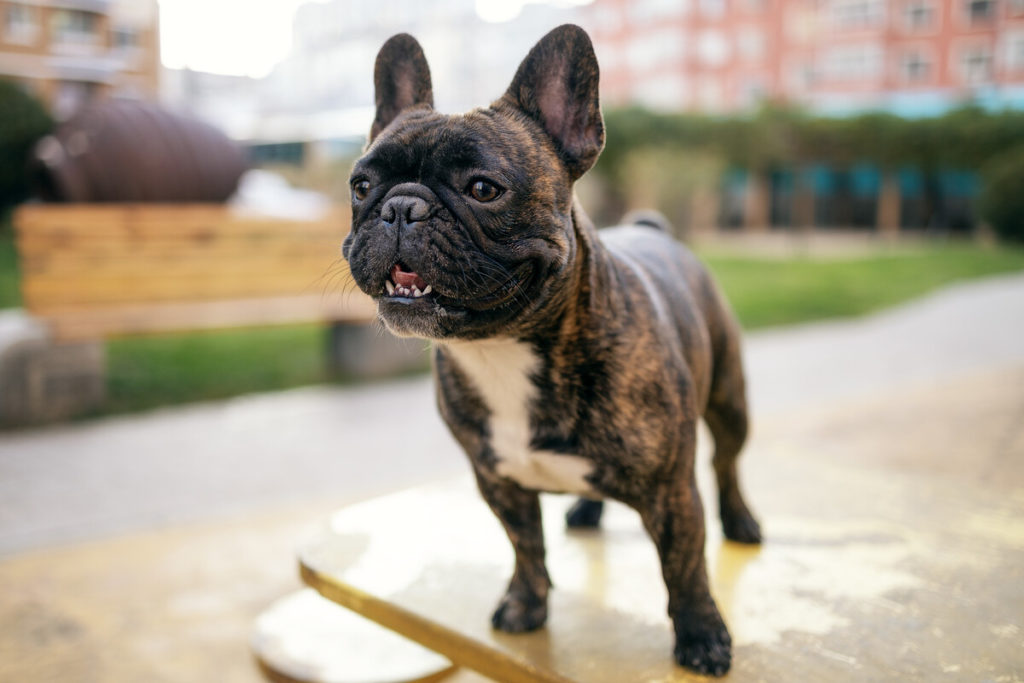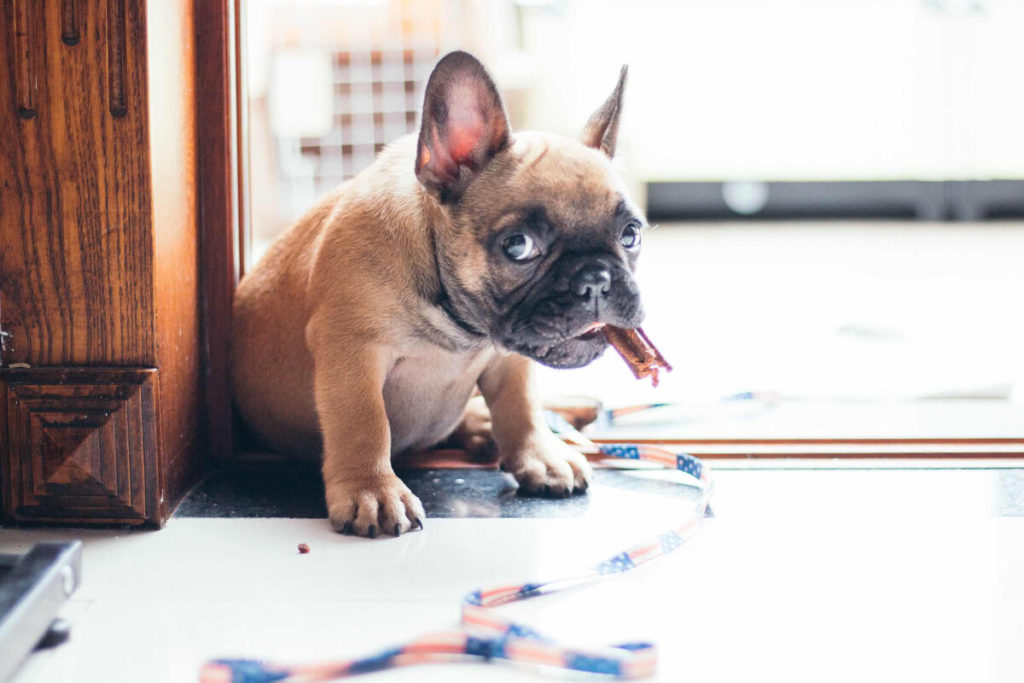The Siberian Husky is a large, arctic breed that has gained recent popularity thanks to their wolf-like appearance and bold personalities. With an influx of people looking to adopt them, it’s important the information regarding neutering them is clear to prevent unreputable breeders from trying to make a profit. We’ve got everything you need to know about neutering your Siberian Husky, from when it should happen to why you should do it in the first place.
What does it mean to neuter an Siberian Husky?
Before taking your Siberian Husky to the vets, it’s a good idea to understand what the neutering process actually involves. The purpose of neutering is to prevent your Husky from being able to reproduce. The procedure will vary depending on whether your Husky is a female or a male. Both procedures involve your Husky being put under general anaesthetic meaning they will be made to sleep whilst the operation takes places.
Female Siberian Huskies – Spaying Procedure
If your Siberian Husky is female, they will undergo a surgical procedure known as ‘spaying’. It is the more complex of the two operations and involves the complete removal of your Husky’s ovaries and womb (uterus). This completely removes any possibility of your Husky becoming pregnant and will also stop them from going into season in the future.

Depending on your specific vet, the procedure can be done either using standard surgical methods or through keyhole surgery. The overall result is the same in both cases, but keyhole surgery may offer a slightly faster recovery due to the smaller incision size.
Despite being a more complex procedure, it is still very safe and is one of the most common operations performed by vets. In nearly all cases, your Husky will be back at home the same day as they went in. Recovery time is up to two weeks to make sure the surgery site fully heals, but your Husky will be up and walking around usually a few hours after the operation.
Male Siberian Huskies – Castration Procedure
If you have a male Siberian Husky, they will undergo a procedure known as ‘castration’ to be neutered. This operation is a simple procedure which involves the removal of their testicles. Doing so means that your Husky will no longer be able to get another dog pregnant.
Castration is a simple operation, but your Siberian Husky will still be required to go under general anaesthetic for it to be completed. The procedure is very safe and is one of the most common operations that vets perform. As with spaying, your Husky will be able to come home the same day as their operation in most cases. Recovery time is still up to two weeks but in our experience, the wound heals much faster compared to spaying.
Why should you neuter an Siberian Husky?
Neutering your Siberian Husky has many benefits beyond just preventing unnecessary pregnancies and here at The Husky Mom, we believe all Siberian Huskies should be neutered unless they belong to trusted and accredited breeders.
Overpopulation
It is undeniable that there is a dog population problem across the United States (and many other countries) and it is estimated that 3.3 million dogs enter the U.S animal shelters every year. Of these dogs, around 670,000 are sadly euthanised each year due to a lack of available care for them.
Siberian Huskies in particular are currently facing population problems due to the recent popularity of shows such as Game of Thrones which use ‘wolf-like’ dogs for filming. Many people have sought after arctic breeds such as Siberian Huskies for their similarities to wolves only to later discover they are unable to properly look after them, resulting in them being given up to shelters.

As a current owner, ensuring that your Siberian Husky is neutered is the best thing you can do to help the overpopulation problem as it prevents any more unnecessary pregnancies. If you are interested in adopting a rescue Siberian Husky, there are several charities set up within the United States to help find the perfect match for your household.
Whilst we are enthusiasts of the Siberian Husky breed, we always advise that you check your local shelters before adopting from a breeder to see if any dogs match your particular requirements.
Health Benefits
Other than preventing pregnancy and controlling the dog population, many health benefits come with neutering your Siberian Husky.
The most prevalent is that neutering your dog reduces the risk of them getting cancer. The risk of them getting cancers of the ovaries or testicles is completely removed and cancers involving other related organs, such as mammary (breast) cancer, have a significantly decreased risk of developing.
In male Siberian Huskies, neutering significantly reduces the risk of them developing prostate disease and decreases their natural drive to wander off. This is particularly important for your Husky as they are known to be escape artists so reducing their instinct to roam can prevent them from getting lost.
In female Siberian Huskies, the risk of getting a phantom pregnancy is completely removed and they will no longer go into season. Whilst these are not life-threatening, they are often very uncomfortable and distressing for your Husky and it is kinder to prevent them from experiencing them in the first place.

When should you neuter your Siberian Husky?
Neutering your Siberian Husky is very important, but it should be done at the right time to prevent any possible negative side effects.
In general, an Siberian Husky should not be neutered before the age of six months old, which is typically how long it takes for them to reach puberty. This has been the accepted age by vets for a long time and is still usually the minimum requirement.
The idea behind this age is that it will prevent any hormonal-driven negative behaviours from becoming learned, particularly in male dogs who will be bombarded with testosterone. If your Husky remains un-neutered and learns these behaviours, such as roaming and humping, it will be very difficult in the future to eradicate them again.
Some vets may require a female Siberian Husky to have their first season before being spayed. This is safe to do so but be prepared for a little bit of mess it. You should not wait for your Husky to have a second season before getting them spayed as this can significantly increase their risk of getting mammary cancers.
This seems simple so far, right? The problems begin to arise when research by the AKC’s Canine Health Foundation is considered. Their research indicates that there could be long term health benefits to neutering a dog after they’ve passed through puberty, which is usually between the ages of 18 months and 2 years for Siberian Huskies.
This research is based on a study that focused particularly on Golden Retrievers and found that those neutered after passing through puberty had a reduced rate of developing orthopaedic health problems and certain cancers, particularly relating to bones.

This research is, understandably, confusing after being told the benefits of neutering early. More research is currently being conducted to compare the differences between different breeds and sizes of dog.
So, what should you do? It boils down to your own personal choice. We’ve had female Siberian Huskies who were spayed at 6 months to go on and live long and healthy lives, and we’ve known male Huskies to go through puberty without developing any behavioural issues despite not being castrated. Every Husky is different and at the end of the day, there is no way of completely preventing all health risks.
The exception here is if your Siberian Husky lives with or is in regular contact with another un-neutered dog and there is a possibility of an unwanted pregnancy. If this case, you should seek to have your Husky neutered as soon as it is safe to do so.
If you have any questions or concerns, we advise you to speak to your vet specifically.
Are there any reasons to not neuter an Siberian Husky?
After discussing the importance of neutering your Siberian Husky, you may be wondering if there are any reasons not to have them neutered.
The only significant reason an Siberian Husky should not be spayed is if they belong to a trusted and accredited breeder for the purposes of keeping the breed alive and maintaining the breed standard. You should never purposefully breed your Siberian Husky if you are not a recognised breeder by The Kennel Club.

If you are considering breeding your Siberian Husky, we once again ask you to think about the significant number of dogs who are currently living in animal shelters and facing uncertain futures.
We think it’s important to make it clear that there are no physical or mental advantages to your Siberian Husky having a litter before being spayed.
We regularly hear it as an excuse from those who have irresponsibly bred their Siberian Huskies but there is simply no truth to the matter. The myth originates from those who believe that having a litter will cause a female dog to calm down and mature, but there is no evidence to support this and in fact, allowing your Husky to have a litter increases several health risks.
Very rarely, your Siberian Husky may have a health condition that prevents them from being neutered. If this is the case, you should discuss your Husky’s options with a vet.
Final Thoughts
The importance of having your Siberian Husky neutered is significant, not only for their health but also to help control the dog overpopulation problem in the United States. In general, Siberian Huskies should not be neutered before the age of six months, and no later than when they reach two years old.
Note that we will not be giving out specific medical advice. If you have queries about neutering your Siberian Husky you should contact your vet.




